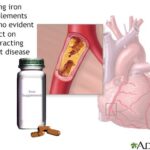Do you find yourself constantly battling food cravings that derail your healthy eating habits? At foods.edu.vn, we understand the struggle and offer proven strategies to help you conquer those cravings and achieve your wellness goals, providing you with the essential tools to diminish cravings and maintain a balanced diet. Learn practical techniques to manage appetite, implement effective craving control measures, and make informed dietary choices with our comprehensive guide.
1. Understanding Food Cravings
1.1. What are Food Cravings?
Food cravings are intense desires to consume specific foods, often distinct from typical hunger. These cravings can be triggered by various factors, including emotional states, dietary habits, and environmental cues. Understanding the root causes of these cravings is the first step in managing them effectively.
According to a study published in the journal Appetite, emotional eating is a significant driver of food cravings.
1.2. Differentiating Between Hunger and Cravings
It’s crucial to distinguish between genuine hunger and cravings. Hunger is a physiological need for food, signaling that your body requires energy. Cravings, on the other hand, are psychological desires often linked to specific tastes or textures. Recognizing this difference allows you to respond appropriately, addressing hunger with nutritious meals and cravings with mindful strategies.
1.3. Common Triggers for Food Cravings
Several factors can trigger food cravings, including:
- Emotional States: Stress, sadness, boredom, and happiness can all lead to cravings.
- Dietary Habits: Restrictive diets or irregular eating patterns can intensify cravings.
- Environmental Cues: Exposure to tempting foods or related advertisements can trigger cravings.
- Hormonal Imbalances: Fluctuations in hormones, particularly in women, can influence cravings.
- Sleep Deprivation: Lack of sleep can disrupt hormones that regulate appetite, increasing cravings.
Identifying your personal triggers is essential for developing effective coping mechanisms.
2. The Psychology of Food Cravings
2.1. The Brain’s Role in Cravings
Food cravings are deeply rooted in the brain’s reward system. When you eat something pleasurable, your brain releases dopamine, a neurotransmitter associated with pleasure and reward. This creates a positive association with the food, making you more likely to crave it again in the future.
2.2. Emotional Eating and Cravings
Emotional eating is a significant contributor to food cravings. Many people turn to food as a way to cope with negative emotions like stress, anxiety, or sadness. This can lead to a cycle of emotional eating and subsequent guilt or shame, further fueling cravings.
